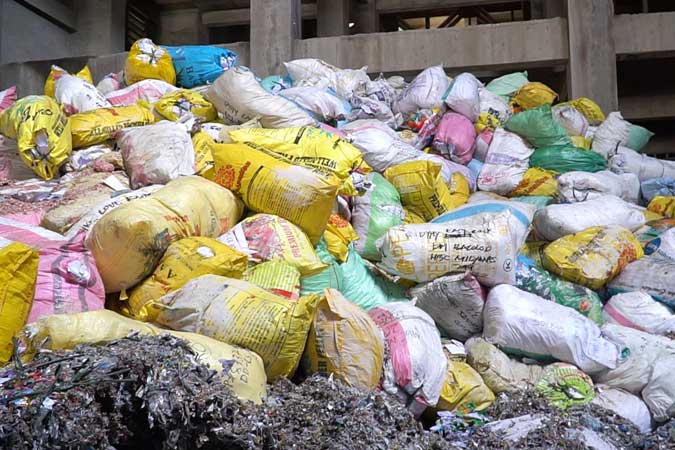DUE TO rapid population growth and continued development in both urban and rural areas, the waste generated every day in the Philippines has steadily increased from over 37,000 tons per day in 2012 to over 40,000 tons per day in 2016. In Metro Manila alone, an average of over 9,000 tons of waste per day was recorded as of 2018. Of this, only 85% of the solid waste is collected and brought to landfills or dumpsites, while the remaining 15% remains uncollected and mostly ends up in waterways and bodies of water.
Despite the passage of Republic Act 9003 or the Ecological Solid Waste Management Act, solid waste management remains a major challenge in the country due to improper waste disposal, inefficient waste collection and the lack of disposal facilities.
Now more than ever, co-processing presents a viable waste management solution to help address this public health and environmental concern. It entails the use of waste as either raw material or source of energy — or both — in industrial processes, especially in energy-intensive sectors. With the reuse or recovery of the thermal and mineral properties of qualified waste materials, natural mineral sources are conserved and non-renewable energy sources such as fossil fuel are avoided.
Since the early 2000s, Republic Cement has been utilizing the cement kiln co-processing method. Pre- and post-consumer waste, primarily plastic, is gathered efficiently in partnership with local government units as well as fast-moving consumer goods (FMCG) manufacturers.
In a single combined operation in the kiln or the main cement production chamber, co-processing completely destroys the qualified waste-turned-fuel at optimal temperatures of 1,450 degrees Celsius. Any waste byproducts such as ash are fully integrated into the microstructures of the clinker, a key ingredient of cement. Upon exiting the kiln, the clinker is quenched and quickly cooled, ensuring complete stability without any other ash residue. Any noxious gases produced are also completely controlled because of the gas and material counterflow within the cement kiln and pollution control devices.
The recovered minerals are similar to the chemical composition of sand and clay, and effectively replace traditional raw materials used in cement production.
While co-processing involves the application of heat to destroy waste, it is distinct from incineration. In cement kiln co-processing, fumes are contained and managed within the kiln and the ash is effectively reused as raw material for cement. Meanwhile, some forms of incineration are purely for waste disposal without any energy or material recovery aspects. There is a higher chance of noxious gases being released into the atmosphere and the ash byproduct usually still ends up in landfills.
Landfilling produces leachate, a highly toxic substance that can pollute land, ground water, and waterways. The decomposition of waste in the landfill also produces greenhouse gases. In the waste management hierarchy, methods such as prevention, minimization, and recovery of materials through recycling and reusing are still preferred over co-processing. However, when these options are no longer available, co-processing remains preferred over unsustainable methods such as incineration, chemical and physical treatment of waste, and landfilling.
The promise of cement kiln co-processing as an institutionalized process in the industry is its far-reaching, collective nature — necessitating collaboration and partnership with other industries and sectors to address the problem of waste at its sources as much as possible. It presents a long-term, sustainable solution that has a massive impact in terms of waste management, environmental conservation, and decarbonization.
Most importantly, it helps keep the local construction materials industry alive and less dependent on external factors such as the geopolitics of fossil fuels and the dangers of substandard imported products. Co-processing is a compelling case for building resiliency, not only of the industry, but overall paves a clear path towards a greener and stronger republic.
Angela Edralin-Valencia is the director of Ecoloop, the co-processing arm of Republic Cement. The cement manufacturer is a partnership between diversified Filipino business conglomerate Aboitiz and leading building materials company CRH headquartered in Ireland.
